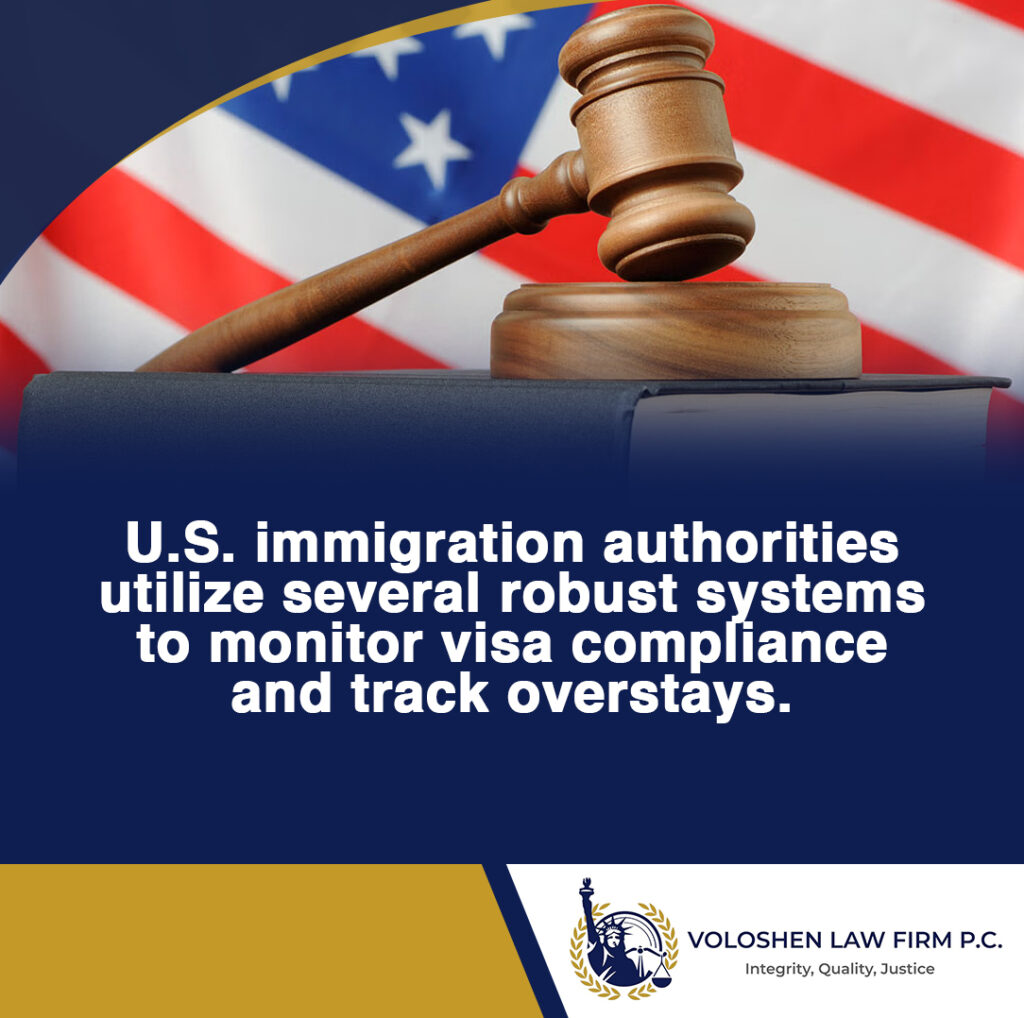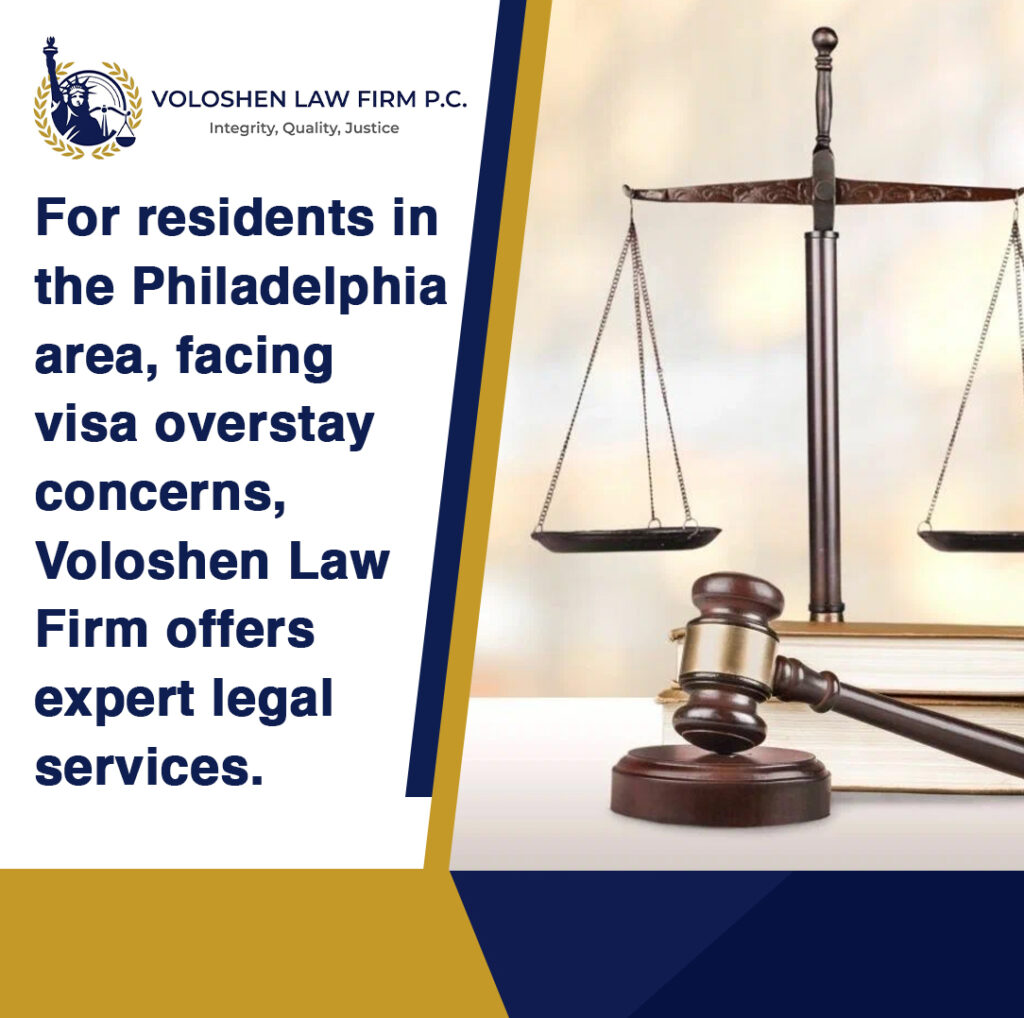Key Takeaways
- Visa Overstay Risks: Overstaying a visa in the U.S. can result in serious consequences, such as deportation, denial of future visas, and long-term travel restrictions. If you overstay for more than 180 days, you may face a 3-year reentry bar, and if over 1 year, a 10-year bar. It is crucial to Track Visa Overstays to avoid these penalties and ensure compliance with U.S. immigration laws.
- Tracking Systems: Immigration authorities use several tracking systems, such as the I-94 arrival/departure record, CBP, DHS, and USCIS databases, as well as the ADIS (Arrival and Departure Information System), to monitor visa compliance. These systems flag overstays and trigger enforcement actions.
- Causes of Overstays: Overstays can occur unintentionally due to factors like processing delays, emergencies, job or school-related issues, or simply not being aware of the visa’s expiration date.
- How Authorities Track Overstays: U.S. immigration agencies use the I-94 record, passport stamps, SEVIS for students, and automated alerts from systems like ADIS and DS-160 to monitor visa statuses and detect overstays. If no exit is recorded after the visa expires, the system flags the overstay.
- Consequences: Overstaying a visa can lead to loss of legal status, ineligibility for status adjustments, or denial of future visa applications. Depending on the length of the overstay, those who overstay may also face deportation and inadmissibility for a specified period.
- Role of Immigration Lawyers: Immigration lawyers in Philadelphia, such as Voloshen Law Firm, can help resolve visa overstay issues. They provide legal advice, assist with status adjustments, and help navigate the appeal process. Lawyers can also help seek waivers of inadmissibility and restore legal status.
- Prevention: To avoid overstaying, individuals should keep track of their visa expiration dates, apply for extensions early, and consult an immigration lawyer when in doubt about their visa status.
- How the U.S. Government Handles Overstays: The U.S. government has multiple methods for dealing with visa overstays, including tracking systems, collaboration between various agencies, and enforcement actions such as issuing a Notice to Appear (NTA), which may lead to deportation proceedings.
- Appeals and Legal Options: If facing deportation or other penalties, immigration lawyers can assist with filing appeals, challenging visa denials, and seeking waivers of inadmissibility or reduced penalties, offering a defense against deportation and future visa issues.
Maintaining legal status in the U.S. is a top priority for anyone on a visa, whether for work, study, or travel. However, staying compliant with visa terms can be more complex than it seems. One of the most common yet serious issues individuals face is overstaying their visas. Overstaying a visa—remaining in the U.S. after your visa expires without extending or adjusting your status—can have serious consequences that can impact your future in the country. These consequences can include deportation, difficulties obtaining future visas, and challenges when applying for a green card or citizenship.
Immigration authorities have robust systems in place to track foreign nationals’ entry and exit, making it easier for them to detect visa overstays. These systems include the I-94 arrival/departure record and other immigration databases, which track an individual’s entry, exit, and the terms of their visa. Once you overstay your visa, the authorities will likely flag your record, putting you at risk of enforcement action.
If you live in the Philadelphia area, an immigration lawyer can help you understand the implications of overstaying your visa and assist with resolving the issue. Specializing in complex immigration matters, these legal professionals can guide you through options such as status adjustment or the appeal process, ensuring you receive the support you need to address any concerns and maintain your legal status.
What is a Visa Overstay?

A visa overstay happens when an individual remains in the U.S. past the expiration date of their visa without seeking an extension or change of status. This is typically recorded on the I-94 form or noted on the visa itself. Overstays can happen unintentionally for several reasons, including:
- Unawareness of Expiration: Some people may not be aware of their visa’s expiration date due to personal distractions like work or school.
- Processing Delays: Delays in the processing of visa extensions, status changes, or paperwork with agencies like USCIS can lead to overstays.
- Emergencies: Unforeseen events such as health or family emergencies can prevent timely departure from the U.S.
- Job or Study-Related Issues: International workers or students transitioning between visa categories or waiting for job or school applications may inadvertently overstay their visas.
- Misinformation: Some individuals may not fully understand their visa terms or the process required to maintain compliance, leading to unintentional overstays.
Regardless of the reason, overstaying a visa can have significant consequences. If you find yourself in this situation, consulting with an immigration lawyer is very important. They can assist with understanding your legal options, navigating the appeal process, and minimizing the impact on future immigration matters.
How Immigration Authorities Track Visa Overstays
U.S. immigration authorities utilize various methods and collaborative systems to monitor visa compliance and identify overstays. These efforts involve several key agencies, including Customs and Border Protection (CBP), the Department of Homeland Security (DHS), U.S. Citizenship and Immigration Services (USCIS), and the Department of State (DOS).
Tracking Systems and I-94 Records
Upon entering the U.S., CBP stamps your passport with your entry date and visa type. You will also receive an I-94 form (Arrival/Departure Record) that tracks your arrival, visa type, and authorized stay period. This information is now electronically available, making tracking easier and more accurate. Since 2013, the U.S. government has implemented an electronic entry/exit system that records both your entry and departure. If no departure record is found after your visa expires, the system flags your status as a potential overstay.
Role of Government Agencies
CBP plays a major role in recording your entry and monitoring your exit. If there is no exit record when your visa expires, CBP flags your case for overstay detection. DHS works alongside CBP to monitor your status in real-time and confirm compliance. USCIS also checks entry and exit records when processing visa extensions or status change applications.
Continuous Monitoring and Alerts
Once you enter the U.S., CBP records your information in the Arrival and Departure Information System (ADIS). This system enables ongoing tracking of your stay. If you overstay, the system automatically flags the violation, alerting authorities and potentially initiating deportation proceedings or affecting future visa applications.
Impact of Overstays on Your Immigration Status
The DHS maintains a centralized database that updates every time you interact with immigration authorities. Any overstay or violation is permanently recorded, which can have long-term effects on your ability to apply for future visas or adjust your immigration status. Immigration authorities cross-reference these records, and overstays may result in removal proceedings, deportation, or reentry bans.
How an Immigration Lawyer Can Help You
If you are facing issues with a visa overstay, seeking the assistance of an experienced immigration lawyer is important. An attorney specializing in immigration law can help you navigate the complexities of overstays, advise you on your legal options, and assist with resolution processes such as status adjustment or appeals. For personalized guidance on your case, contact Voloshen Law Firm P.C., based in Huntingdon Valley, PA, for expert legal support.
How Overstays Affect Your Status
Overstaying your visa can have serious consequences, affecting your current legal status and future opportunities to enter or stay in the U.S. Immigration authorities closely monitor visa compliance, and overstaying can result in penalties such as deportation, denial of future visa applications, or ineligibility for certain visa programs like the Visa Waiver Program.
Consequences of Overstaying
- Loss of Legal Status: Once you overstay your visa, your legal status is void, making you “out of status.” This can lead to complications with immigration authorities.
- Risk of Deportation: Overstaying your visa may trigger removal proceedings, leading to deportation and possibly a reentry bar. While deportation may not always be immediate, it is a significant risk.
Impact on Future Visa Applications
- Visa Denial: A history of overstaying may result in the denial of new visa applications (e.g., tourist, student, or work visas).
- Ineligibility for Certain Programs: Overstays may exclude you from programs like the Visa Waiver Program and restrict your ability to apply for certain visas.
- Reentry Bars: Overstays can lead to reentry bars:
- Less than 180 Days: No reentry bar, but you may be required to leave and could face challenges extending your visa.
- More than 180 Days but Less Than One Year: 3-year reentry bar.
- More than One Year: 10-year reentry bar.
Mitigating the Impact of Overstays
Given the potential severity of these penalties, consulting an experienced immigration lawyer is critical. They can help you understand your options, explore waiver strategies, and guide you through the legal processes to resolve your overstay.
What Happens After You Overstay Your Visa?
Overstaying a visa in the U.S. is a serious violation that can have lasting consequences. Here’s an overview of what happens when you overstay your visa and the potential impacts.
Implications of Being Out of Status
When you overstay your visa, you lose legal status, meaning you are no longer authorized to remain in the U.S. This can result in:
- Loss of Legal Status: You are no longer allowed to work, study, or engage in activities permitted under your visa.
- Ineligibility for Status Adjustments: You may not be eligible for a visa extension, change of status, or permanent residency.
- Violation Record: Your overstay will be recorded in government databases, affecting future immigration applications.
Potential Removal Orders
One major consequence of overstaying is the possibility of deportation. The process typically includes:
- Notice to Appear (NTA): This is a formal notice that the U.S. government intends to begin removal proceedings.
- Immigration Court: You may have a chance to present a defense, such as showing a valid reason for overstaying.
- Voluntary Departure: In some cases, you may be allowed to leave voluntarily, which can reduce legal consequences.
- Inadmissibility: Overstaying may make you inadmissible to the U.S. for several years.
How the U.S. Government Deals with Overstays
The U.S. government takes visa overstays seriously and employs multiple systems and procedures to track and address violations. Here’s how they handle overstays:
- Visa Overstay Tracking System: Several databases are used to monitor visa overstays and identify individuals who stay beyond the allowed duration of their visa.
- SEVIS (Student and Exchange Visitor Information System): This system tracks students (F or M visas) and exchange visitors (J visas). If a student overstays, their status is flagged, prompting government action.
- DS-160 (Non-Immigrant Visa Application): The DS-160 form records detailed information, including entry and exit dates, which immigration authorities use to check for overstays.
- Customs and Border Protection (CBP): CBP monitors visa compliance and shares entry/exit data with other agencies. When an overstay is detected, they take enforcement actions such as issuing warnings or notices.
- Automated Alerts: The government’s automated systems trigger alerts when an overstay occurs, leading to investigations or enforcement actions such as issuing a Notice to Appear (NTA).
- Internal Reviews: DHS and CBP regularly review immigration records to identify overstays. This includes analyzing I-94 forms, entry/exit data, and other relevant records.
How Immigration Lawyers in Philadelphia Can Help

If you are in Philadelphia or regions nearby and have overstayed your visa or are worried about doing so, immigration lawyers in Philadelphia can be a valuable resource. They specialize in navigating U.S. immigration laws and can help you resolve overstays and avoid long-term consequences.
The Role of Immigration Attorneys in Overstays
Immigration attorneys are experts in U.S. immigration policies and can assist with:
- Providing Legal Advice: A lawyer will assess your situation, explain the implications of your overstay, and guide you on the best course of action.
- Assisting with Appeals: If facing a removal order, a lawyer can represent you in an immigration appeal, arguing for the best possible outcome.
- Navigating Legal Procedures: U.S. immigration law is complex. An attorney will help you navigate the process and avoid mistakes.
Options for Resolving Overstays
- Waivers of Inadmissibility: If eligible, you may apply for a waiver to forgive your overstay. Immigration lawyers can help you file this complicated application.
- Restoring Legal Status: In some cases, you can apply to restore your legal status through a visa extension or change. A lawyer in immigration will guide you through this process.
Benefits of Consulting an Immigration Lawyer
Consulting an immigration attorney provides several benefits, including:
- Defense Against Deportation: A lawyer can help you present a defense in court if you face deportation due to an overstay.
- Managing Appeals: Lawyers can file appeals to challenge decisions related to your overstay, including seeking waivers or reducing penalties.
- Avoiding Future Problems: Working with a lawyer makes sure that future visa applications are not affected by your overstay.
How Immigration Appeals Can Help
Immigration appeals may resolve overstays and prevent deportation. They can:
- Appeal Visa Denials or Penalties: A lawyer can challenge visa denials or penalties for overstays before an immigration court.
- Seek Waivers: Lawyers can present compelling cases for waivers based on your circumstances.
- Stop Deportation: In some cases, an appeal can stop deportation proceedings, allowing you to stay in the U.S.
How to Avoid Overstaying Your Visa
Preventing a visa overstay is the best way to avoid serious consequences. Here are some essential steps to stay compliant with your visa:
- Know Your Visa Expiration Date: Track your visa’s expiration date. Set reminders well in advance to avoid missing them.
- Apply for Extensions Early: If you need more time, apply for an extension well before your visa expires. Allow enough time for processing.
- Change of Status: If switching to a different visa, start the process before your current visa expires.
- Seek Legal Advice: If unsure about your visa status or need guidance, consult an immigration lawyer, like Voloshen Law Firm P.C. in Huntingdon Valley, PA, to assure compliance.
Contact Voloshen Law Firm for Expert Legal Advice
Voloshen Law Firm P.C. is a trusted immigration law firm based in Huntingdon Valley, Pennsylvania, serving clients across the Philadelphia area. Led by an experienced team, the firm specializes in providing legal counsel for individuals facing complex immigration matters, including visa overstays, status adjustments, deportation defense, and citizenship applications. With a client-focused approach, Voloshen Law Firm is dedicated to helping clients navigate the complexities of U.S. immigration law, offering personalized solutions tailored to each case. Whether you need assistance with visa extensions, green card applications, or resolving issues related to visa violations, Voloshen Law Firm provides expert guidance and representation.
If you’re uncertain about your visa status or need to adjust it, consulting an experienced immigration lawyer is vital. Voloshen Law Firm P.C. can help you navigate the process and prevent issues before they escalate. For expert assistance, contact the experts today at (215) 437-7854 or via email at igor@voloshenlaw.com.
